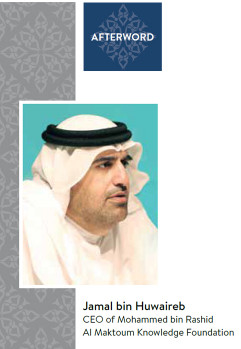The Importance of the Literacy Challenge Forum
Knowledge is an important driver of growth of nations, and people cannot produce, innovate and develop unless they eradicate illiteracy and take reading as a way of life.
This is why His Highness Sheikh Mohammed bin Rashid Al Maktoum, Vice President and Prime Minister of the UAE, Ruler of Dubai, launched the Literacy Challenge initiative to become our a guide for us at the Mohammed bin Rashid Al Maktoum Knowledge Foundation (MBRF) to organize the “Literacy Challenge Forum” to keep abreast of the many diverse initiatives launched by the wise leadership of the UAE, which aim to advance the peoples of the region and the world at large.
The first edition of Literacy Challenge Forum is to be held this month (February 2020) under the patronage of His Highness Sheikh Mohammed bin Rashid Al Maktoum, Vice President and Prime Minister of the UAE, Ruler of Dubai, and with directives from H.H. Sheikh Ahmed bin Mohammed bin Rashid Al Maktoum, Chairman of the Mohammed bin Rashid Al Maktoum Knowledge Foundation (MBRF) and in collaboration with the United Nations Development Programme (UNDP) and the United Nations Educational, Scientific, and Cultural Organisation (UNESCO). At this event, experts, scholars, educators, intellectuals, and creative people in the fields of education, culture, technology and knowledge in general come to Dubai, to put forward their ideas, visions and practical experiences on how to eradicate illiteracy in our Arab world and the whole world.
Let’s be honest, dear reader, the illiteracy rate in the Arab region stands at about 21%, according to figures announced by the The Arab League Educational, Cultural and Scientific Organization (ALECSO). It is a frightening statistic because it is much higher than the international rates that put the average illiteracy rate in the world at around 13.6%. The political turmoil in Arab countries in the last decade has deprived about 13 million Arab children the opportunity to attend school, which is a very unfortunate matter that requires more effort to confront this deadlock that threatens the future of the Arab nations at the core.
I have no doubt that the Forum will bring for us a comprehensive picture of the illiteracy situation in our Arab world in order to understand the roots of the problem accurately, and will also work within its pillars that will be discussed to explain the state of illiteracy and adult education in Arab countries, as well as showcasing successful experiences from elsewhere in the world in order to benefit from them.
We have dedicated most of the articles of this issue to discussing the problem of illiteracy from all sides, because it is a very complicated issue. We must understand the problem in order to eliminate this hidden epidemic through creating new solutions that promote investment in accelerated technological development on the one hand, and to draw on previous experiences that have achieved prominent successes on the other hand.
In this issue, we highlight some successful experiences in eliminating illiteracy, such as that of Cuba, which was liberated from the illiteracy shackles in the 1960s. We also discuss the best ways to combat illiteracy in Africa.
Illiteracy in the concept era is not limited to alphabetical illiteracy, but there is also technological illiteracy, which is a major problem at a time when technology has become the strength of any society seeking development in order to achieve sustainable development and contribute to building modern human civilization, which is what we also focused on in this issue.
The elimination of illiteracy, the promotion of the virtue of reading among the youth, and the consolidation of the principle of knowledge lead to the development of countries and peoples, which is what our wise leadership strives to achieve with determination and perseverance.








